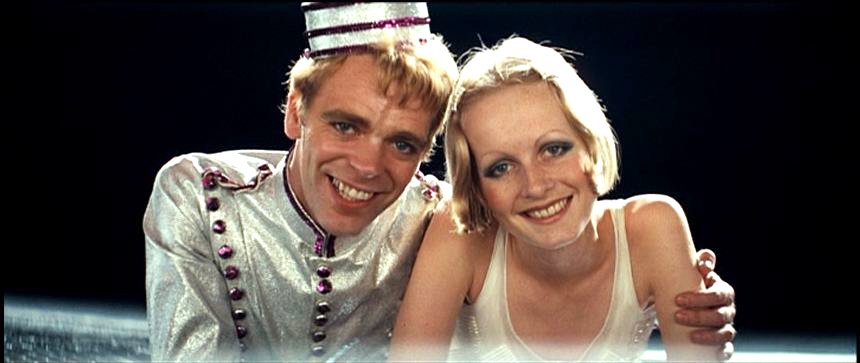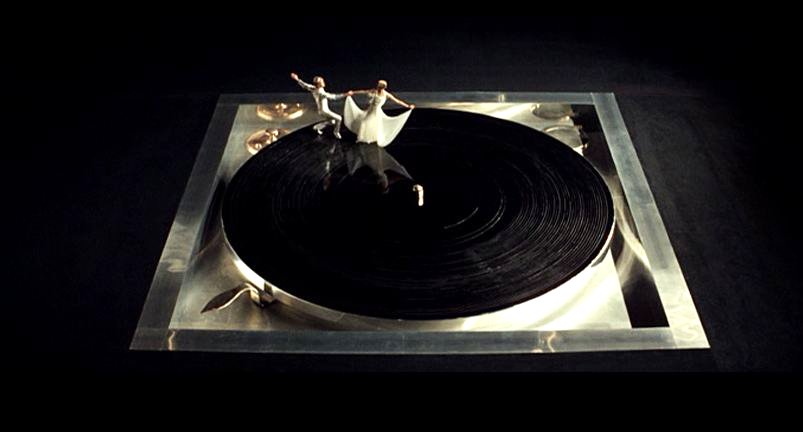
Written by Sandy Wilson
Directed and adapted for the screen by Ken Russell
UK, 1971
Ken Russell pictures have a way of sneaking up on you. Many a young and not-so-young filmgoers have experienced a kind of shocked dry heave of wonderment after their first, or even seventh, Ken Russell experience. I recall a young man for whom the joy of first seeing The Devils nearly induced an anxiety attack. Talking in tongues is not altogether unlikely, either.
A maximalist by trade, and always as earnest as he is plain hyper and mocking, Russell’s musicals hold a special, especially cult-worthy place. The Boy Friend, his first musical, stands out as a novel, landmark take on musical adaptations. It stirred Roger Ebert’s more nearsighted of woeful jabs, when he called the camera work “joyless” and compared the film’s star, Twiggy, to “a Hummel figurine titled ‘Malnutrition.’” I take his words as evidence of the film’s more subtle successes.
Where most adaptations pull the original off the stage and give it longer legs, Russell’s adaptation keeps it on stage and revels in the original’s subtext, pasting it advertently in the foreground. As Sally Wilson’s original version was a goofy pastiche of 1920s shows (Rogers and Hart’s The Girl Friend comes to mind, as Wikipedia points out), here the director ponders what the show may have been like if a ramshackle company of his own design in his own reimagined 1926 put it together as a Busby Berkeley overreach.

The spotlight is then almost entirely focused on backstage tribulations, daydreams of Berkeley scale, and the hijinks of the production’s players. The lead has broken her leg and Twiggy’s Polly Browne, the mousy, wafey assistant stage manager in spectacles, is set to go on in her place. Meanwhile, rumors that real, live, big-shot talkie musical director De Thrill is in the audience turn out to be true. The show then unravels masterfully, punctuated by the original musical’s often quaint and cheesy (and gorgeously arranged) numbers; Polly’s awkward and sweetly infatuation with her co-star, Tony, carries her through, while everyone else scrambles to screw each other over for a chance at Hollywood—all with a rather mesmerizing effect.
The next couple of hours are brimming with a variety of loves: unrequited, secret, adulterous, spaniel-alleviated and, occasionally, fateful. With every passing minute, the company looks more and more like a dysfunctional, cramped family, and its schlocky yet over-the-top production of the deliberately schlocky Wilson musical proves increasingly endearing as we get to know the drama and ridiculousness going on off the wings. Russell’s lavish display of high highs and low lows—complete with an inspired jellyfish tapdance—is a continually enamoring pleasure, while a familiar set of theatre folk clichés at their liveliest keeps the whole thing from tearing to shreds.

Even five arrangements of “I Could Be Happy With You” in, it’s understandably easy to want it to just keep going. The old Russell dry heaves kick in anew, and even the most “joyless” shot of dozens of can-can beauties on a 30-foot wide turntable seems inspired. There’s a glint in De thrill’s hungry eyes up in his box; sometimes you just have to point a camera at what’s been begotten and allow it to carry on. Sometimes more is more, and you can just let it roll.
David Bradford


